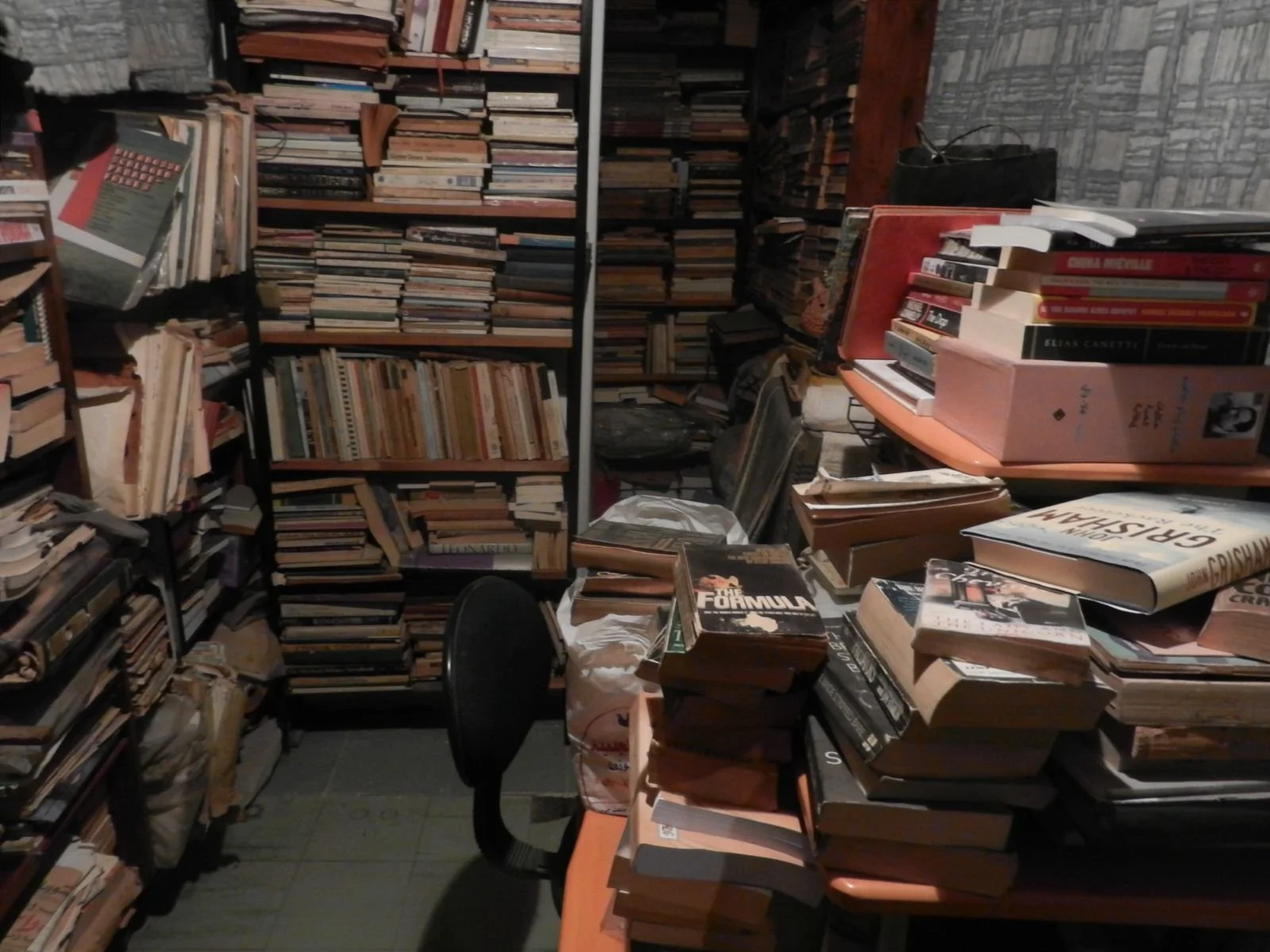I want to tell you about two things I learned from Sonallah.
First: the imperative to archive—which is to say: to read, to connect, to put into order, to not forget.
I will never forget how I first met Sonallah. It was in 1992. I was in my early twenties, and he was about the age I am now. He had recently published his novel, Dhat, and I went to his apartment to talk to him about it. I wanted to translate it, even though my Arabic was not up to the task at all. He recommended that I ride the tram from Midan Falaki out to Heliopolis. It took about an hour or so. He recommended that I bring a book along with me, to make the ride lovely. Good advice, always. I climbed the six flights of stairs and Sonallah greeted me at the door. He offered me tea and a cigarette, and asked, “Did you see Merryland Park on the left as you came out?”
And with that, we’d entered the world of the heroine of his novel. We talked for a while, then he showed me his archive.
If you ever visited the home of Sonallah and Leila, you know what I am talking about—the massive shelves of books and binders and folders stuffed with articles clipped from newspapers and magazines: some from the official press, some from the opposition press, some from the foreign press, in German, English, Russian, and French. For years, Sonallah had been reading and clipping and sorting these news items into categories. And then he arranged them into a library, giving them an order that allowed him to link people, events, and stories over many, many years.
To be honest, it seemed to me a kind of madness. Chaos. I’d imagined an author like him would spend his days on this Earth reading texts that had intellectual and aesthetic merit. But instead, here he was bragging about reading newspapers like Al-Ahram, Al-Akhbar and Al-Goumhouriya with the kind of concentration and seriousness you might expend on difficult poetry. That destroyed the image of intellectualism that I’d had in my mind.
It took time and many conversations to realize that Sonallah was presenting a method of reading. How to read the lies of our political regimes, how to grapple with the myths of our ruling classes. He offered a method for observing strange patterns within daily events, and a method for preserving that allowed us to come back to read them again with fresh eyes. In that way, we might discover the truths hidden in the fictions of official proclamations. In that way, we might come to see that separate events and separate people and separate institutions may not be so separate after all.
What Sonallah taught me, in novels like Dhat and The Committee, and in our conversations over thirty years or more, was a method for reading a system of control and domination that is both local and global. In the process, he taught me other lessons, like how our ruling classes—whether in Cairo or in Washington—depend on our forgetfulness. Our oppressors, here and there, know something very important about human nature: namely, we are forgetful. That is our weakness as humans. But at the same time, Sonallah taught me that if we can remember, and if we can hold experience and understanding in our hearts and minds, then we have a chance to create a better world, a more just world. This was a lesson and a gift, and I am forever in Sonallah’s debt for it.
The second thing Sonallah taught me was much simpler, but no less important. It was the joy of sharing a pot of tea, a bottle of beer, a pack of cigarettes, as we talked and talked. The happiness of sitting with a friend, which is even more delightful if it happens on a balcony on a warm summer night in Heliopolis, with no phone calls to interrupt us and no television blaring in the background. I miss those conversations. I miss riding the tram out to Sonallah’s house. I miss his archive, I miss his balcony, and I miss him.

